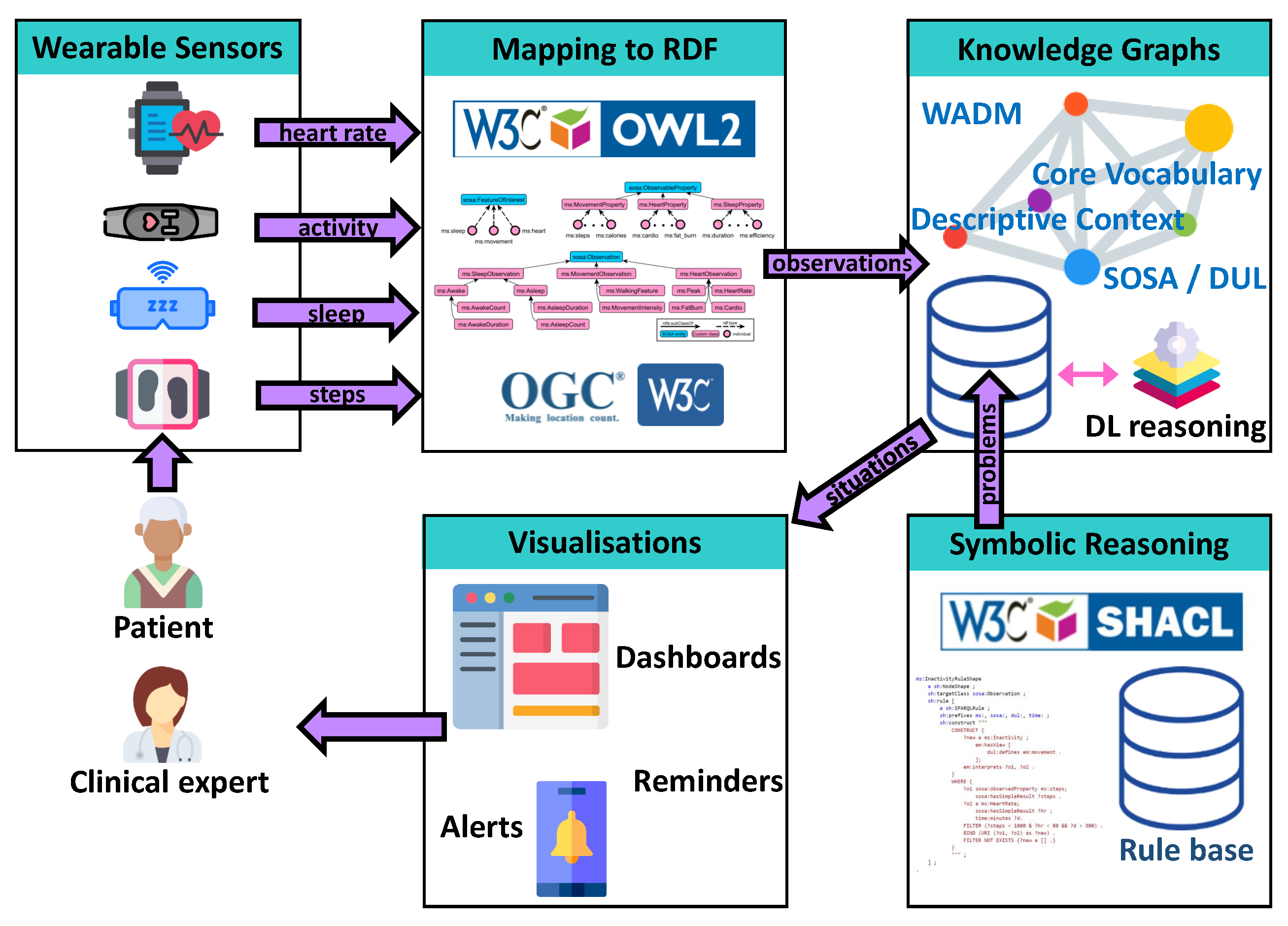
Smart Wearables Detect MS Health Events
A groundbreaking study has demonstrated how wearable sensors combined with symbolic intelligence can revolutionize the remote care of Multiple Sclerosis (MS) patients. The research, part of the eHealth4MS project, introduces a knowledge-driven framework that detects health-related events and lifestyle behaviors in real-time using data from consumer wearables such as Fitbit Charge 3. This system provides both patients and clinicians with actionable insights for timely intervention and long-term monitoring.
The system leverages semantic technologies—specifically OWL 2 ontologies and SHACL rules—to interpret sleep patterns, physical activity, and heart rate data. It then constructs interoperable knowledge graphs, enabling intelligent event detection like insomnia, stress, inactivity, and excessive napping. These insights are visualized through a clinician dashboard, where raw data and detected anomalies are presented in an intuitive format. The dashboard enables healthcare professionals to trace behavior patterns and make data-driven decisions on treatment plans or patient follow-up.
Two patient scenarios illustrate the value of this framework. One user showed increased inactivity and napping, suggesting physical or psychological decline. The system's alerts prompted early clinician engagement. Another case highlighted potential issues in sensor adherence and underlined the importance of continuous monitoring. In both cases, the symbolic intelligence layer added interpretability that raw sensor data alone could not provide.
Clinical experts appreciated the framework’s potential, particularly for its objective insights, ease of use, and modular adaptability. Suggestions for improvement included integration of water intake tracking, medication logging, and EEG data for mental health monitoring. Performance evaluations further proved the system’s scalability and efficiency, even with thousands of data points and rule-based inferences.
By turning wearable data into semantically enriched insights, this framework offers a powerful tool for proactive, personalized, and affordable MS care. Its modular architecture and interoperability make it applicable to broader chronic disease management, paving the way for smarter healthcare ecosystems.

Adapted from: https://www.mdpi.com/1424-8220/21/18/6230